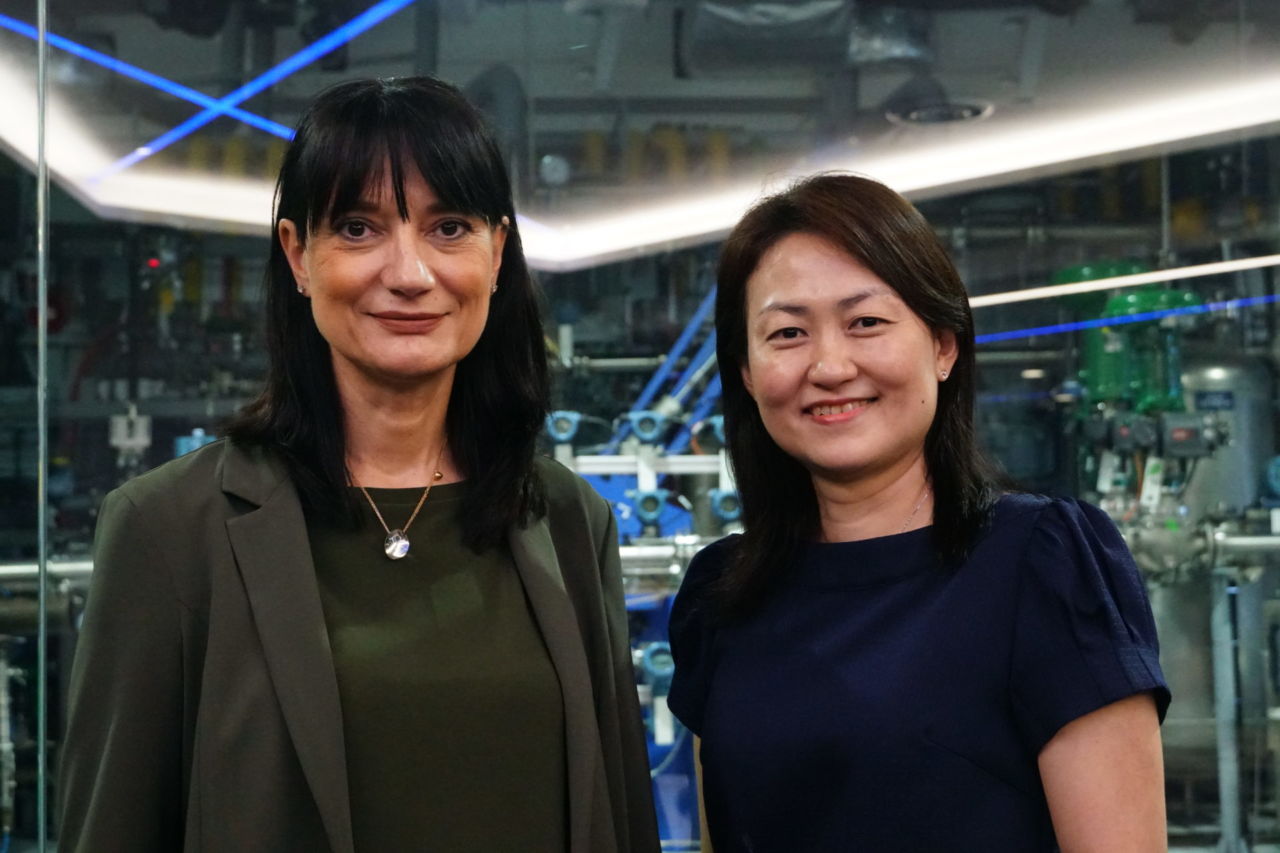Potential slowdown won’t hinder decarbonisation push
As part of the Asian Downstream Insights’ ongoing Women in Oil & Gas series, we bring you a sit-down with Veronica Constantin, Vice President of Global Sustainability, and Amy Loi, Asia Pacific Sales and Marketing Director at Emerson.
As the Vice President of Global Sustainability, Veronica Constantin has an abundance of experience to draw from. “I started working for Emerson quite a while ago, and have been with the company for more than 26 years now,” she explains, “and so I became very passionate about sustainability and the topic of decarbonisation.”
Likewise, Director Amy Loi has been with Emerson for 20 years, and today helms a sales and marketing department, as well as brownfield decarbonisation. “Within this role,” she says, “we scope out the brownfield; decarbonisation comprises of energy efficiency, emission control, as well as carbon capture, storage and utilisation.”
The 2022 Asian Downstream Summit focused heavily on the topics of sustainability and decarbonisation, as did the more recent COP27 climate change conferences, held in Egypt in November.
As far as efforts toward decarbonisation are concerned, Constantin is confident that the push will continue. “There are a lot of discussions, and with everything that is happening with entire geopolitical environments there might be a slowdown in terms of pace, but things are definitely evolving in the right direction.”
Big oil and gas companies are continuing with their investments in oil and gas, she says, which is a necessary step toward achieving net-zero. However, she also draws attention to the fact that they are “spending a lot in decarbonisation in energy efficiency, emissions reduction, or even clean fuels” – which continues to link oil and gas investments to decarbonisation efforts.

The 2022 Singapore International Energy Week saw Deputy Prime Minister Lawrence Wong’s announcement of Singapore’s National Hydrogen Strategy, which will provide a roadmap for using hydrogen to support the country’s decarbonisation efforts. The question now is where this fits into the industry’s plans toward achieving sustainability, and how much more focus this particular facet will be awarded.
Says Loi: “For Singapore, I think usage of hydrogen is still in its infancy, compared to some other countries in the Asia-Pacific region… But if Singapore really invests in moving forward with hydrogen, we are there to support the industry.”
If it ain’t broken…
One potential roadblock in this endeavor toward embracing a hydrogen economy falls to the refiners and a perceived hesitancy in implementing new technologies. Constantin comments: “The refiners have always been conservative, given the complexity of the processes run, and the high safety risks. This is the challenge: Nobody wants to be the first to test something out, but they don’t want to be second, either.”
If refiners balk at implementing new technology and software without knowing the full extent of their potential first, that’s where solutions providers like Emerson come in, with products like their digital twin offering.
“You can replicate the same process in a virtual world, and basically simulate how it will perform,” says Constantin. “Whether it’s a refinery, a hydrogen electrolyser, or any other process, you can virtually map it, and then try to simulate any abnormal situation and see how it will operate at scale and thus eliminate risks.”
It starts from childhood
The times are a-changing, as indicated by the push toward a more hydrogen-focused economy. Incidentally, this same change has led to increased diversity among the workforce too.
“In the initial 10 years or so, I used to be the only woman when I went for management meetings,” muses Loi. “But now we have a good mix of women in management positions in our organisation, and we are recruiting more women into the organisation for engineering and management positions. We are consciously trying to make sure that we are not biased in our hiring process.”
It’s an ongoing effort to encourage more women to join STEM-related fields – and to do that, you have to first encourage little girls to pursue STEM-related education, according to Constantin.
“First of all, [STEM-related education] directs you toward the sciences… If you decide later in life that you want to do something STEM-related, it will be more complicated if you don’t have that education first. You can always change your mind later, but [STEM-related education] opens the door to everything.”